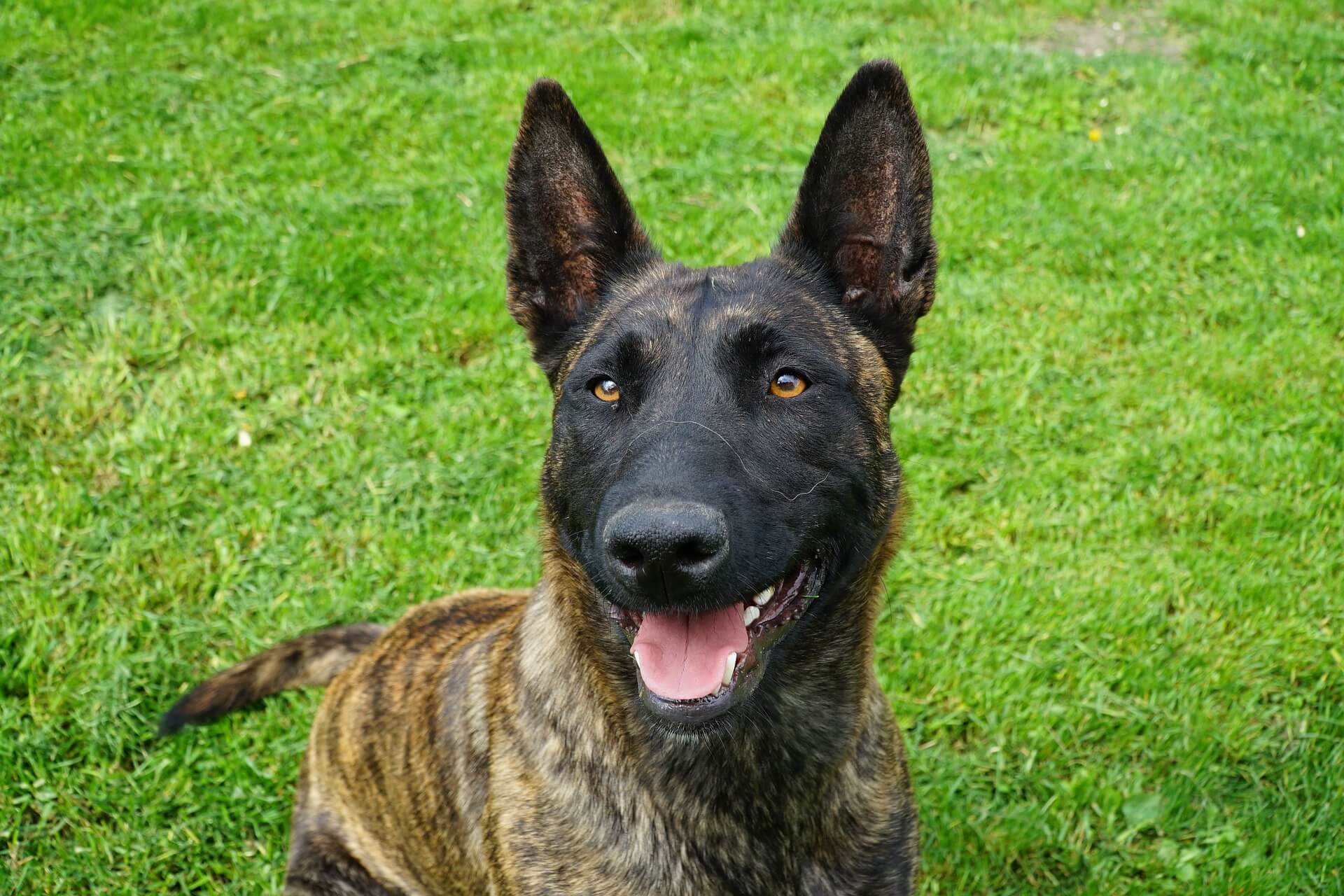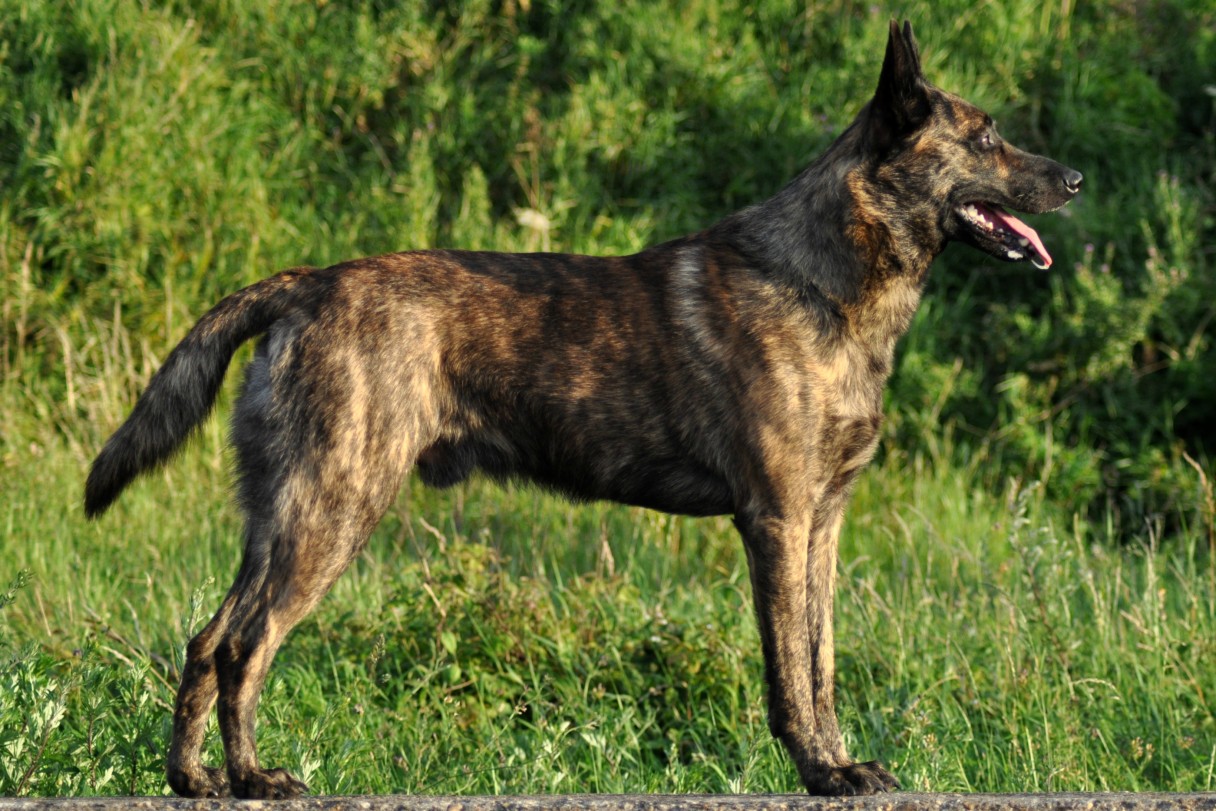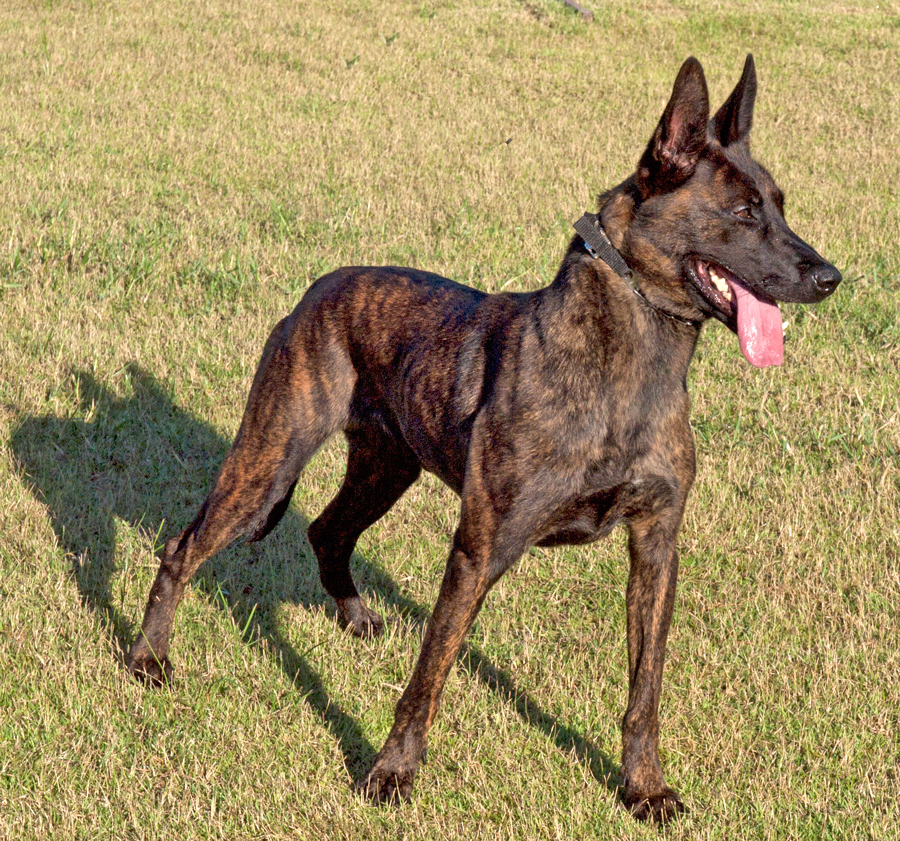Dutch Shepherd Dog: Unveiling The Loyal And Versatile Herder
The Dutch Shepherd Dog, often celebrated for its striking appearance and formidable intelligence, stands as a testament to centuries of dedicated breeding for utility and companionship. Originating from the Netherlands, this remarkable canine embodies a unique blend of loyalty, athleticism, and a keen working drive that has captivated dog enthusiasts worldwide. From their historical roots guarding flocks and farms to their modern roles in law enforcement and as beloved family members, Dutch Shepherds offer a fascinating study in canine versatility and resilience.
This comprehensive guide delves into every aspect of the Dutch Shepherd Dog, exploring its rich history, distinct characteristics, temperament, and the essential care requirements that make for a happy, healthy, and well-adjusted companion. Whether you're considering welcoming one into your home or simply curious about this magnificent breed, understanding their specific needs and heritage is crucial. Join us as we uncover what makes the Dutch Shepherd not just a dog, but a truly exceptional partner.
Table of Contents:
- Arrowhead Bmw
- The Hoxton Downtown La
- Canadian Snowbirds Selling Florida Homes
- Landers Toyota Little Rock
- Northeast Baptist Hospital
- The Dutch Shepherd Dog: A Brief Overview
- A Rich History: From Dutch Farmlands to Global Recognition
- Distinctive Characteristics and Varieties
- Temperament: The Heart of the Dutch Shepherd
- Training and Socialization: Nurturing Their Potential
- Health and Wellness: Ensuring a Long and Vibrant Life
- Grooming and Exercise: Meeting Their Physical Needs
- Is the Dutch Shepherd Dog Right for You?
- Conclusion: A Loyal Companion for the Right Owner
The Dutch Shepherd Dog: A Brief Overview
The Dutch Shepherd Dog is a medium-sized herding breed originating from the Netherlands. Known for its intelligence, loyalty, and high energy levels, this breed excels in various working roles, from police and military work to search and rescue, and competitive dog sports. Their striking brindle coat, which can range from golden to red to silver brindle, is a hallmark of the breed, though they also come in long-haired and wire-haired varieties. Despite their working prowess, a well-trained and socialized Dutch Shepherd can make an exceptional family pet, provided their needs for mental and physical stimulation are met. They are often compared to their Belgian and German Shepherd cousins but possess a unique set of traits that set them apart.
A Rich History: From Dutch Farmlands to Global Recognition
The origins of the Dutch Shepherd Dog are deeply rooted in the agricultural landscapes of the Netherlands during the 19th century. Farmers in the Dutch countryside required a versatile working dog capable of performing a multitude of tasks. These dogs were indispensable, serving as herders for sheep and cattle, guardians of the farm, and even as cart pullers. Their primary role was to manage flocks, preventing them from straying into cultivated fields and ensuring their safety from predators. This need for an adaptable and intelligent canine led to the development of the breed we know today.
Unlike many breeds that were developed for specific aesthetic traits, the Dutch Shepherd was bred purely for its working ability. This focus on function over form contributed to their robust health, intelligence, and unwavering work ethic. The breed faced a decline in numbers during the early 20th century due to changes in agricultural practices, particularly the reduction in sheep farming. However, dedicated breeders worked to preserve the breed, recognizing its invaluable qualities. Their efforts ensured the survival of the Dutch Shepherd Dog, transitioning them from primarily farm dogs to highly valued working dogs in various modern capacities.
The Etymology of "Dutch"
It's an interesting linguistic quirk that in English, we refer to things from the Netherlands as "Dutch," rather than "Netherlander" or "Hollander." This stems from historical linguistic developments, where "Dutch" evolved from an Old English word related to "people" or "nation," encompassing various Germanic-speaking regions. While the exact etymology is complex and debated among linguists, it's clear that the term became firmly associated with the Netherlands in the English language. Thus, the "Dutch Shepherd Dog" is named directly after its country of origin, reflecting a long-standing English convention.
The Breed During Dutch Global Influence
The period when the Dutch Shepherd Dog was being solidified as a distinct breed coincided with significant eras of Dutch global influence. Throughout most of the 17th and also the 18th century, the Dutch mainly just controlled the island of Java, Bali, and parts of Sumatra, among other overseas possessions. The Dutch imported and exported the largest amount of grain, spices, and other commodities and resources, establishing a vast trading empire. While the Dutch Shepherd Dog itself was not directly involved in overseas trade, the pragmatic and resilient spirit required for such expansive ventures likely mirrored the traits valued in these working dogs. The need for efficient, reliable workers, whether human or canine, was paramount in a society that relied heavily on local princes to do the work for them and managed a vast empire that encompassed a multitude of ethnicities under singular rule, as was the case with the Dutch Republic and its overseas possessions. The Dutch Shepherd, therefore, embodies the hardy, adaptable nature that characterized the Dutch people's historical endeavors, whether protecting local farms or supporting the economic backbone of a trading nation.
Distinctive Characteristics and Varieties
The Dutch Shepherd Dog is renowned for its athletic build, intelligent expression, and striking brindle coat. They are typically medium-sized, with males standing between 22.5 to 24.5 inches (57-62 cm) at the shoulder and females slightly smaller at 21.5 to 23.5 inches (55-60 cm). Their weight generally ranges from 50 to 70 pounds (23-32 kg), depending on sex and build. Their body is well-muscled and agile, built for endurance and speed.
One of the most defining features of the Dutch Shepherd is its coat, which comes in three distinct varieties:
- Short-haired: This is the most common variety, featuring a dense, harsh coat with a woolly undercoat. It requires minimal grooming and is highly weather-resistant.
- Long-haired: This variety has a long, straight, coarse coat with a dense undercoat. It requires more regular grooming to prevent matting but offers excellent protection in colder climates.
- Wire-haired (Rough-haired): The rarest variety, characterized by a dense, harsh, curly coat with a soft, dense undercoat. This coat type also requires specific grooming, including hand-stripping, to maintain its texture and protective qualities.
All three varieties share the characteristic brindle pattern, which can vary in intensity and shade. The brindle can be golden (more yellow/reddish background) or silver (more grey/blue background), with black stripes. This unique coat pattern not only makes them visually distinctive but also serves as excellent camouflage in natural environments, a useful trait for a herding dog.
Temperament: The Heart of the Dutch Shepherd
The temperament of the Dutch Shepherd Dog is arguably its most defining characteristic, making it an ideal working dog and a challenging yet rewarding companion. They are known for their:
- High Intelligence: Dutch Shepherds are incredibly smart and eager to learn. This makes them highly trainable but also means they require significant mental stimulation to prevent boredom and destructive behaviors.
- Loyalty and Devotion: Once they bond with their family, Dutch Shepherds are fiercely loyal and protective. They form strong attachments and thrive on being an integral part of the household.
- Strong Work Drive: This breed possesses an innate desire to work and have a purpose. They excel in activities that challenge their minds and bodies, such as obedience, agility, protection sports, and search and rescue.
- Vigilance and Alertness: Their herding and guarding instincts make them excellent watchdogs. They are naturally wary of strangers and quick to alert their owners to anything unusual.
- Energy and Stamina: Dutch Shepherds are not couch potatoes. They have boundless energy and require substantial daily exercise to stay healthy and happy. Without adequate outlets for their energy, they can become restless or destructive.
- Confidence and Independence: While loyal, they also possess a degree of independence. They are confident in their abilities and can sometimes be strong-willed, requiring a firm but fair hand in training.
It's important to note that while generally good with children and other pets within their own family, proper socialization from a young age is crucial. Their strong prey drive and protective instincts mean they need to learn appropriate interactions with others. For experienced dog owners who can provide consistent training and meet their high energy demands, the Dutch Shepherd Dog offers an unparalleled partnership.
Training and Socialization: Nurturing Their Potential
Given their high intelligence and strong work drive, training and socialization are paramount for a Dutch Shepherd Dog. These aren't dogs that can be left to their own devices; they thrive on structure, consistency, and a clear understanding of their role within the family. Effective training not only ensures a well-behaved companion but also fulfills their innate need for mental engagement.
Early Socialization is Key
Socialization should begin as early as possible, ideally during the critical puppy development period (3-16 weeks). Expose your Dutch Shepherd puppy to a wide variety of sights, sounds, people, and other well-behaved dogs in a positive and controlled manner. This helps them develop into well-adjusted adults, less prone to fear or aggression. Enroll in puppy classes, take them to dog-friendly parks (once fully vaccinated), and introduce them to different environments. This foundational work is crucial for a breed with strong guarding instincts, helping them differentiate between a true threat and an everyday occurrence.
Consistent and Positive Reinforcement
Dutch Shepherds respond best to positive reinforcement methods. They are intelligent and eager to please, making them quick learners when motivated by rewards such as treats, praise, and play. Harsh corrections or punishment-based training methods can be detrimental, potentially leading to fear, anxiety, or aggression in such a sensitive yet powerful breed. Consistency is vital; everyone in the household should use the same commands and expectations. Daily training sessions, even short ones, reinforce good habits and strengthen the bond between dog and owner. Given their heritage as working dogs, they excel in various dog sports like obedience, agility, flyball, and protection work (e.g., IGP/Schutzhund), which provide excellent outlets for their energy and intelligence.
Health and Wellness: Ensuring a Long and Vibrant Life
The Dutch Shepherd Dog is generally considered a healthy and robust breed, a testament to their working origins where soundness was prioritized over aesthetics. However, like all breeds, they can be predisposed to certain genetic health conditions. Responsible breeding practices, including health screenings of parent dogs, are crucial to minimize the incidence of these issues. The average lifespan of a Dutch Shepherd is typically 11 to 14 years.
Key health concerns to be aware of include:
- Hip and Elbow Dysplasia: These are genetic conditions affecting the joints, leading to arthritis and lameness. Reputable breeders will have their breeding stock certified clear of these conditions by organizations like the Orthopedic Foundation for Animals (OFA).
- Degenerative Myelopathy (DM): A progressive neurological disease affecting the spinal cord, similar to ALS in humans. It leads to weakness and paralysis in the hind limbs. A DNA test is available to identify carriers and affected dogs.
- Eye Conditions: While less common, some lines may be prone to certain eye conditions. Regular eye examinations by a veterinary ophthalmologist are recommended.
- Cryptorchidism: This is a condition where one or both testicles fail to descend into the scrotum. It's a genetic fault that can lead to health issues if not addressed.
Beyond genetic predispositions, maintaining a healthy lifestyle is paramount. This includes providing a high-quality, balanced diet appropriate for their activity level, ensuring they receive regular veterinary check-ups, and keeping up-to-date on vaccinations and parasite prevention. Early detection and intervention are key to managing any health issues that may arise, contributing to a longer, healthier life for your Dutch Shepherd Dog.
Grooming and Exercise: Meeting Their Physical Needs
Meeting the physical needs of a Dutch Shepherd Dog is crucial for their overall well-being. These are not low-maintenance dogs; they require significant daily engagement to thrive.
Exercise Requirements
The Dutch Shepherd Dog possesses a high energy level and an inherent need for physical activity. Their history as herding and working dogs means they are built for endurance and require more than just a leisurely walk around the block. Without sufficient exercise, they can become bored, destructive, and even develop behavioral issues. A minimum of 60-90 minutes of vigorous exercise daily is recommended, ideally broken into multiple sessions. This can include:
- Long, brisk walks or jogs
- Running alongside a bicycle (once fully grown and conditioned)
- Hiking in varied terrain
- Playing fetch or frisbee in a secure area
- Participating in dog sports like agility, flyball, or dock diving
Beyond physical exercise, mental stimulation is equally important. Puzzle toys, training sessions, and interactive games can help satisfy their intelligent minds. In the Netherlands, there has been a trend since the 1970s to limit usage of private cars within cities, encouraging walking and cycling. This cultural emphasis on active living aligns well with the Dutch Shepherd's need for an active lifestyle, making them suitable companions for owners who enjoy outdoor activities and can integrate their dog into their active routines.
Grooming Tips
Grooming requirements for the Dutch Shepherd Dog vary depending on their coat type:
- Short-haired: This variety is the easiest to maintain. A weekly brushing with a rubber curry brush or a shedding blade is usually sufficient to remove loose hair and keep the coat healthy. They shed moderately year-round, with heavier shedding twice a year.
- Long-haired: Requires more frequent brushing, ideally several times a week, to prevent mats and tangles. A slicker brush and a long-toothed comb are essential tools. They also shed moderately.
- Wire-haired (Rough-haired): This coat type requires specialized grooming, including hand-stripping a few times a year to remove dead hair and maintain the coat's texture. Regular brushing in between stripping sessions is also necessary.
Regardless of coat type, all Dutch Shepherds benefit from regular nail trims (every 2-4 weeks), ear cleaning, and dental hygiene. Introducing these grooming routines early in puppyhood will make them more accepting of the process as adults.
Is the Dutch Shepherd Dog Right for You?
Deciding if a Dutch Shepherd Dog is the right fit for your lifestyle is a significant consideration. This breed is not for everyone, and a thorough understanding of their needs is crucial for a successful partnership. Here are key factors to consider:
- Experience Level: Dutch Shepherds are best suited for experienced dog owners who understand the demands of a high-drive working breed. First-time dog owners might find their energy and intelligence overwhelming without proper guidance.
- Active Lifestyle: If you lead an active life and enjoy outdoor activities, a Dutch Shepherd can be an excellent companion. They thrive in environments where they can participate in daily exercise and mental challenges. Couch potatoes need not apply.
- Time Commitment: These dogs require significant time investment for training, exercise, and mental stimulation. They are not dogs that can be left alone for long periods without consequences.
- Training and Socialization: Are you committed to consistent, positive reinforcement training and ongoing socialization? This is non-negotiable for a well-adjusted Dutch Shepherd.
- Family Dynamics: While generally good with children they are raised with, their strong herding instincts mean they might try to "herd" young children. Supervision is always recommended. They can coexist with other pets if properly introduced and socialized from a young age, but their prey drive should be considered.
- Space: While they can adapt to apartment living if their exercise needs are met, a home with a securely fenced yard is ideal to provide them with space to run and play.
The Dutch Shepherd Dog is an exceptional breed for the right owner—someone who is dedicated, active, and willing to invest the time and effort into training and socializing this intelligent and loyal companion. For those who can meet their needs, the rewards are immense: a devoted, protective, and highly capable partner.
Conclusion: A Loyal Companion for the Right Owner
The Dutch Shepherd Dog stands as a remarkable example of a working breed, embodying centuries of careful selection for intelligence, versatility, and an unwavering loyalty. From their humble beginnings on Dutch farms, where they were indispensable for managing livestock and guarding property, to their modern roles in demanding fields like law enforcement and competitive dog sports, their adaptability and keen intellect shine through. Their distinct brindle coat and robust physique are outward signs of the hardy, capable spirit within.
As we've explored, owning a Dutch Shepherd is a commitment to an active, engaged lifestyle. They demand consistent training, extensive socialization, and ample mental and physical stimulation to thrive. While not the right fit for every household, for those experienced owners who can meet their unique needs, the rewards are immeasurable. A Dutch Shepherd Dog offers a bond built on mutual respect and shared activity, a loyal protector, and a tireless companion ready for any adventure. If you're seeking a dog with intelligence, drive, and devotion, the Dutch Shepherd Dog might just be the perfect addition to your life.
Have you had the pleasure of living with a Dutch Shepherd Dog? Share your experiences, training tips, or questions in the comments below! We'd love to hear from you and continue the conversation about this incredible breed. For more insights into working dog breeds and responsible pet ownership, explore other articles on our site.
- Kill Devil Grill
- Hilton Cancun Mar Caribe
- Bernie Leadon
- Embassy Suites Indianapolis Downtown
- Chinatown Las Vegas

Dutch Shepherd Dog Breed Information

Dutch Shepherd Dog Breed Information - American Kennel Club

Dutch Shepherd Dog Info, Temperament, Puppies, Training, Pictures